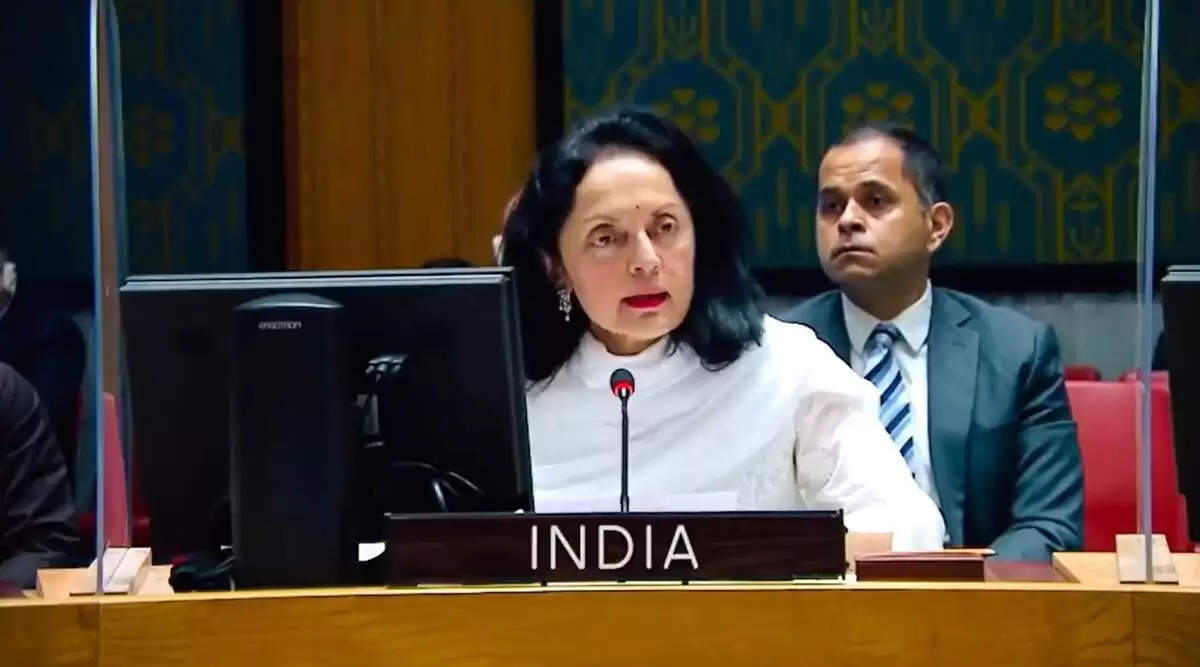India votes against Russia in the UNSC's procedural vote on Ukraine, marking a first.

India cast its first anti-Russian vote on Wednesday during a "procedural vote" on Ukraine at the 15-member, influential UN Security Council, which invited Ukrainian President Volodymyr Zelenskyy to address a meeting via video teleconference.
After the Russian military intervention started in February, India has never before voted against Russia on the topic of Ukraine. New Delhi has so far refrained from voting on Ukraine in the UN Security Council, much to the chagrin of the Western nations led by the United States.
Following the aggression, Western countries, particularly the US, sanctioned Russia severely on the economic and other fronts.
Vassily A. Nebenzia, the Russian ambassador to the UN, asked for a procedural vote to approve the Ukrainian president's attendance in the meeting via video teleconference as the meeting got underway.
By a vote of 13 in favour to 1 against, the Council invited Zelensky to take part in the meeting via video teleconference after remarks from him and Ferit Hoxha of Albania. China abstained, and Russia voted against the invitation.
Nebenzia maintained that Zelensky's participation must be in person and that Russia does not object to it. He claimed that although the Council decided to conduct virtual sessions during the COVID-19 epidemic and return to the temporary rules of procedure after the pandemic's height, these meetings were informal.
India and 12 other nations disagreed with his request for a procedural vote on the issue and supported Zelensky's decision to address the Council through video conference. He reiterated that his country's objection relates exclusively to the President's participation by video teleconference.
Hoxha of Albania asserted that because of the conflict in Ukraine, the President must travel there. He encouraged the other members to follow Zelensky's lead and supported Zelensky's participation via video teleconference due to this particular circumstance.
Nebenzia disappointed that Council members had voiced their opposition to adhering to the organ's regulations. He expressed disappointment that some participants had helped to undermine the Council's core base by saying, "We can see the rationale of Kyiv's Western allies
The president of Ukraine urged Russia to end its "nuclear blackmail" and entirely leave the plant.
The situation inside and surrounding the Zaporizhzhia nuclear power facility has Antonio Guterres extremely concerned, emphasising that "the caution lights are blinking."
He declared that any actions that might jeopardise the plant's physical integrity, safety, or security are unacceptable and warned that any further escalation of the situation could result in self-destruction. He also called for the IAEA to send a mission as soon as possible and for the security of the plant to be guaranteed.
Concern over suspected transgressions of international humanitarian law was another issue raised by Guterres.
"Russia's purpose is as plain as ever: to disintegrate Ukraine as a geopolitical entity and wipe it off the world map," claimed US Ambassador to the UN Linda Thomas Greenfield.
In order to get ready for further attempts to invade Ukrainian land, she claimed that the group's disinformation campaigns were becoming more and more weaponized.
She informed the UN Security Council that the effort by Russia to impose its will on Ukraine's borders will never be recognised.
She claimed the Russian Federation carelessly assaulted and forcibly took control of the site, threatening nuclear catastrophe, despite Ukraine's unblemished record of nuclear energy safety and security at the Zaporizhzhia nuclear power station.
The "so-called filtration operation" by Moscow, which entails the systematic and coerced deportation of citizens from Ukraine to off-the-grid regions of the Russian Federation, alarmed the American envoy.
Speaking at the event were representatives from France, Ireland, Norway, the United Kingdom, Gabon, Ghana, Mexico, and China as well as the European Union in its position as observers.
On Wednesday, Ukraine celebrated its Independence Day, marking precisely six months since Russia's military campaign against the country began on February 24.
.png)